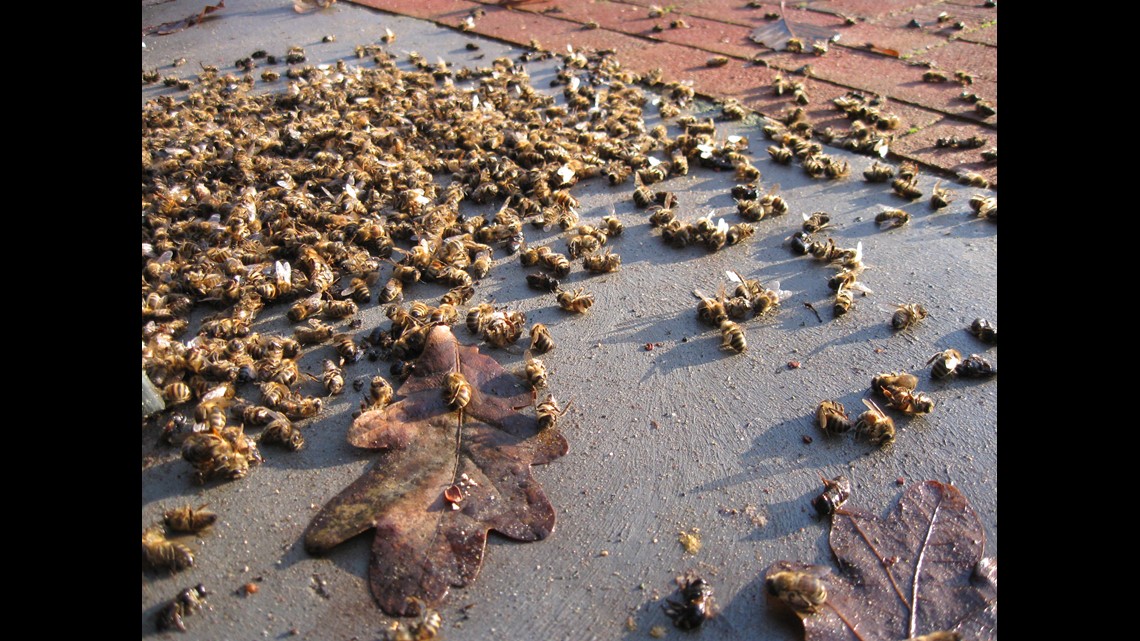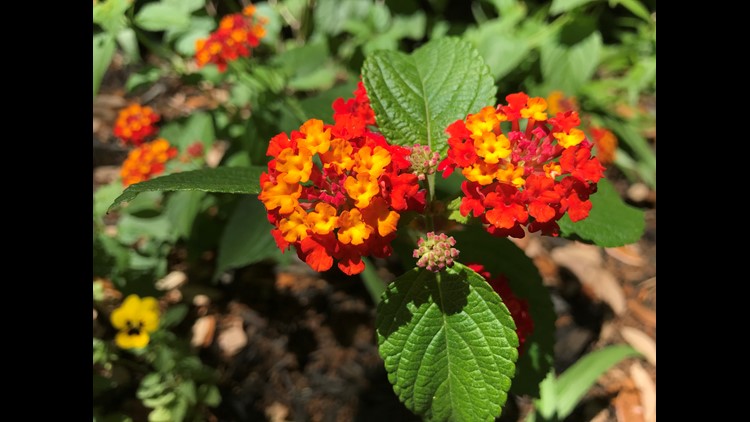HOUSTON — Gorgeous flowers abound this spring in our gardens and wild lands of southeast Texas, but where are all the bees? Sure there are some, and they haven't completely buzzed off, but their numbers are reduced. Optimistically, you could say it's a diet plan. Pessimistically it could be the end of farming. Okay, okay, we're far from anything that bad, but if something doesn't change, we may be in for a big problem -- potentially, a new reality. So say experts who study them. .............. Bee keepers lost over 30% of their hives during the last year. In the year previous, it's thought that losses may have amounted to more than 40% of hives. Each year allows for some recovery, but the business model may be too tough for many smaller bee keepers to stay open, further contributing to long-term declines. While bees do sting, they also account for most pollination we depend on to get our fruits and veggies going each season. Without bees, only the wind could do the job -- and that would likely not be enough. Simply put, no bees means no food ............. So what's happening? In short no one really, "fully" knows. It's been confirmed that parasites like the varroa mite are doing a number on colonies. This nasty bug can easy spread between hives and has been observed to decimate their populations. Speculation as to other culprits include the changing global weather patterns and new pesticides. One family of agricultural bug killers called, "neonicotinoids" are being blamed. This pesticide is closely related in chemical structure to the addictive drug, nicotine, found in tobacco. Instead of killing humans [from cancer], this, "neonid" pesticide kills insects like aphids by interrupting their nervous system functions. It's feared that this pesticide is even more lethal to honey bees than the infamous DDT. Compounding the impact, this pest control chemical has become very popular among big, corporate ag companies because it's highly water soluble (so it can be absorbed by the plant via its roots). Simply put, it's not going anywhere until it's banned by the government. (It should be noted that these chemical pesticide connections are officially still in their "study" phases here in the US, but over in Europe the EU has banned at least three neonid varieties with explicit reasoning to, "protect honeybees." )


But there is good news! You can help.
- Buy local honey, to encourage small-scale bee keepers to stay in business (which on the national scale can mean thousands of more bee keeping operations!)
- If you're a bee enthusiast, consider becoming a bee keeper. (I know, that's a tall order, but think of all the free honey.)
- Consider bee-friendly gardens which can make it easier for our striped friends to collect nectar needed to keep their colony going.
- **Don't leave open jars of non-local honey outside in the recycling bin without first washing them out in hot, soapy water. Whatever's left in the bottle can contain bacteria and fungus which a visiting local bee can take back to its colony, killing the hive.
- Don't kill honey bees indiscriminately with wasp spray if you see them buzzing around. They'll only sting if you purposely bother them, you step on one or they perceive you're antagonizing them. If one starts buzzing you, just slowly walk away. Don't wave your arms around or they may think it's a provocation.
- Write your local congress person and urge them to fund further research into the causes and cures for honey bee decline.
Hopefully this decline is just a glitch in the history of bees and not yet another product of human impacts on this planet. Let's hope our commercial efforts through, "big agricultural" to feed our population by employing neonid pesticides does not ironically result in future food shortages. While I don't personally think we're on the edge of some sort a bee apocalypse, every time I see a spring flower without a bee buzzing, I find myself pausing. -Meteorologist Brooks Garner



